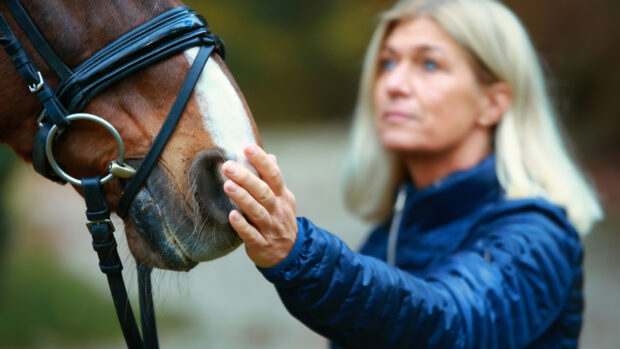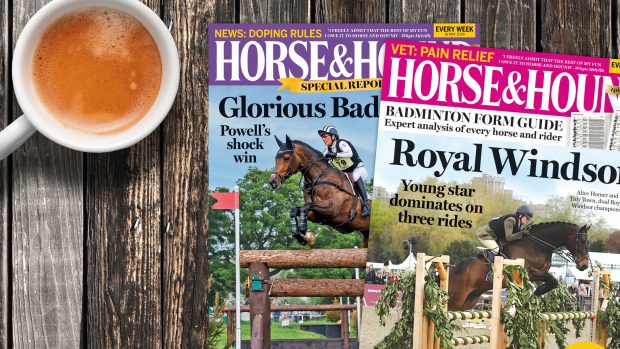Promotional Feature with Saracen Horse Feeds
With feeding playing a huge role in preparing your horse for the competition season, Saracen’s Lizzie Drury shares some of her golden rules…
DO learn how to interpret a feed label
Make sure you’re choosing the right feed for your horse — every manufacturer has to declare what ingredients are in the bag in the order of proportion.
“Slow release energy sources, such as oils, will support stamina and help with trainability and focus,” says Lizzie. “Fast-release energy, in cereals, encourage quickness off the leg, and can be helpful for laidback or lazier horses. Event horses, generally, will need a combination of both.
“Also make sure you look out for the BETA NOPS logos, as an indication of quality control and procedures.”

Check the ingredients list on bags to make sure you know exactly what you are feeding your horse
DON’T obsess over supplements
“If you are feeding a balanced ration, you shouldn’t need a huge number of supplements,” explains Lizzie. “Feed is manufactured to meet the requirements of various horses. It obviously can’t include everything so sometimes strategic supplement use is of benefit.”
Lizzie recommends considering including additional salt as workload increases, a joint supplement to support wear and tear and a hoof supplement if your horse suffers from poor feet.
“But what you shouldn’t need are things like blood tonics, energy supplements, vitamin B,” she says. “Feeding twice as much does not do twice as much.”
DO speak to your feed supplier if you have questions
“Feeding is another cog in the big wheel turning to get your horse to an event. You would be confident picking up the phone to the farrier or the vet if needs be, as well as the physio and saddle fitter,” Lizzie points out, explaining that it is the same with feeding, and that you shouldn’t hesitate to ask your feed supplier if you have any questions or concerns.
“Feeding can mean the difference between first and second, so make use of the expertise on hand so you can concentrate on riding and training. It could even save you some money.”
DON’T think you need to feed too much concentrate
“Many people seem to feel they need to feed a shed load of concentrates,” says Lizzie. “If you are feeding between 4.5-5kg per day, and still think you need to feed more, you should really looking at other aspects [of your horse’s diet].
“Don’t underestimate the importance of forage — it seems boring, but it is the basis of feeding.”

Consider the amount of concentrates you are feeding — most horses should not need more than 4.5-5kg of hard feed per day
DO learn how to condition score
Condition-scoring your horse is a valuable way of monitoring his weight and body condition, and can help guide your feeding decisions.
“Condition scoring is about looking at body fat storage as an indication of energy intake and expenditure,” explains Lizzie, who recommends body condition scoring your horse on a three-to-four week basis throughout the competition season. “It’s a very useful tool, rather than just relying on a weigh bridge, and once you get confident with it, it becomes really accurate and can form a fundamental part of your management regime.”
Learn more about condition scoring in our video, below.
DON’T forget to monitor the amount of forage your horse is eating
“It’s important to have a handle on how much forage your horse is eating,” says Lizzie. “Weigh your night time haynet and anything leftover in the morning, to help you work out if your horse is not eating enough, or not being fed enough.”
If your horse is greedy, and finishes his hay very quickly, think about ways of trickle feeding, whether that’s by offering forage on a little and often basis, or by using a net with smaller holes to encourage him to slow down his eating.

It’s important that you know how much forage your horse is eating
“The horse shouldn’t be without forage for long periods — that’s when you will get an ulcer problem,” warns Lizzie.




